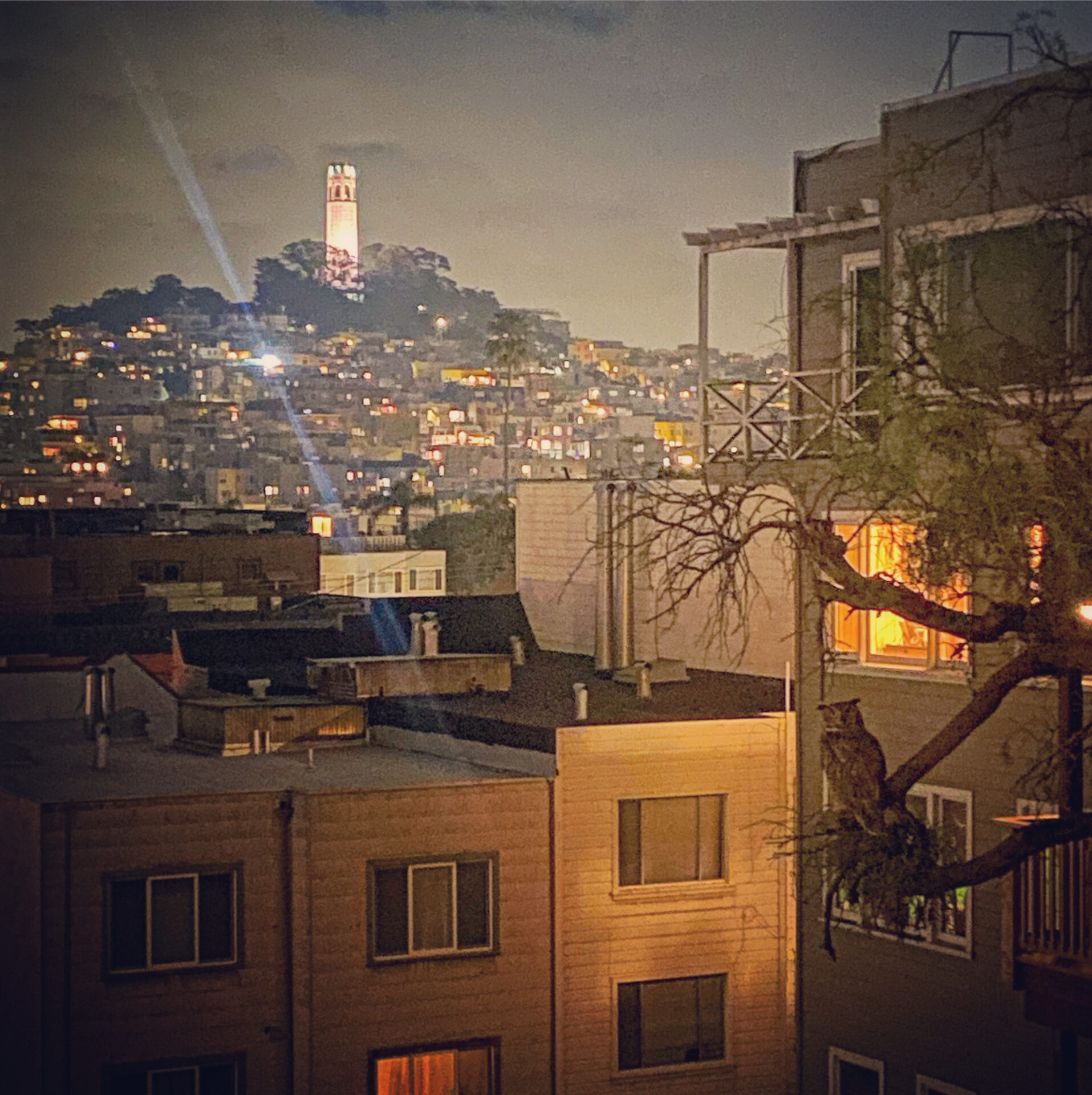That Night Feeling
By Whitney Grover

It’s dark but only just dark, maybe a street light or a bright moon casts a blue glow over the world. You feel a little lonely but also exhilarated, not at all tired. The first stars twinkle and the vastness of the night sky adds to your mixed emotions, something between melancholy and tranquility. What you are feeling is That Night Feeling. There’s a small dimly lit corner of the internet devoted to expressing it and trying to capture it with images. The subreddit, r/thatnightfeeling, wraps up the description, “homesick for something you can’t quite remember.”
Is this what a Swainson’s Thrush feels the night it decides to leave the comfort of the only home it’s ever known to find a jungle 3,000 miles away? On a cool fall evening here in the bay, the sun sets, and perhaps the young bird is overwhelmed with That Night Feeling and takes off into the darkness, heading on its epic migratory journey to Central America.
Or perhaps I’m taking too much liberty, anthropomorphizing. I will say, thinking about the hundreds of thousands of birds that take to the skies in North America every night during the fall migration adds to my Night Feeling. I am in absolute awe of their migration and their ability to arrive in places they have never been before, using the stars and natural night sky to navigate. But that awe is dampened, or maybe electrified, by fear, dread for the labors they face along the way.
There are the dangers that have always been there: you could have always gotten lost, you could have always misjudged the weather and gotten caught in a storm, you could have always succumbed to a predator waiting in ambush for the moment you land. But now there are new challenges, challenges you didn’t have the chance to prepare for: your main navigational tool is gone, you can no longer see the stars, you can no longer see a dim haze of last light on the horizon. The landscape is sprinkled with dozens of glowing orbs brighter than any moon. Where there were trees there are now buildings, invisible to you but hard enough to stop you dead in your tracks. The creeks are gone and instead, streams of cars transect the landscape. New predators wait in ambush.
The super bright skyglow emanating from large cities attracts birds. This attraction causes harm in two ways: it causes birds to stop over in cities more frequently and it bends their migratory route, often increasing the distance they have to travel. A few extra stops may not seem particularly harmful but cities are dangerous for birds. Every additional stop increases the chances they could succumb to the dangers above.
On top of all this, migration is incredibly taxing. Birds need high quality nutritious food, in abundance, to make it as it is. When they arrive, even on an uninterrupted and unmodified route, they need food fast. When bright cities bend their migratory route to the glow, even if they don’t stop, they are flying further. Flying further takes more energy, more energy on the same amount of food doesn’t add up, and birds starve.
Speaking of food, imagine once again you are a Swainson’s Thrush. What is your absolute favorite meal, the thing that gets you fueled up and ready for anything? Correct, caterpillars. And the night supplies this need through moths. Moths also migrate, and are also attracted, disoriented and harmed by artificial light at night. A decrease in abundance of moths impacts birds indirectly through the decrease of their food supply.
Of all the threats birds face, light pollution is my favorite to work on as a bird advocate. Unlike all the other forms of habitat loss and degradation–toxic industrial waste, climate change–artificial lights can be turned off in an instant. It is literally as easy as flicking a switch. And when we do, when we do it all together, that natural night sky will be back to its ancient brilliance and utility for night creatures immediately.
Whether you are a Swainson’s Thrush, a moth, or a human, the natural night sky is good for you. For us humans, there are physiological benefits of natural light cycles such as improved circadian rhythm. But I think we shouldn’t overlook the cultural benefits of dark skies as well. Where did That Night Feeling come from? Why is it universal and obsessed over? I can’t say for sure, but my hunch is that it’s a very old biological memory. We can have it back, even in our cities: the mystery, beauty, fear, and future of crickets chirping, frogs croaking, an owl calling in the distance, and the glittery band of the milky way, showing us our place in the universe.
Whitney Grover is the Director of Conservation for Golden Gate Bird Alliance. She participated in the 2019 Master Birder class and is a co-founder of the SF Bay chapter of the Feminist Bird Club.
